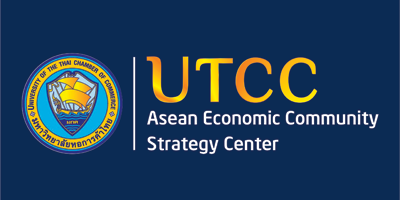Thailand: Managing in a slow-growth economy: The voice of businesses
The latest economic data is promising, as it shows that many economies have been gathering growth momentum after the lacklustre performance over the past several years, according to a report by consulting firm Deloitte.
But a modest recovery in the global economy is projected to indicate economic stabilisation, but not a sign of robust revival. Many economists perceive that the world economy remains fragile given the existing risks and uncertainties such as Europe’s debt crisis, Chinese economic sluggishness, the policy stance of the US administration, the possibility of more countries leaving the EU and rising migration and terrorism, according to a survey report conducted by Deloitte Thailand’s associate director Sahanon Tungbenchasirikul and senior consultant Weerachai Wiwatchankit.
The situations in these major economies could significantly undermine the world economy at any time, leaving many economies to suffer from weak international investment and trade, potentially derailing their recovery tracks altogether, according to the report.
As Thailand is an export-dependent country, where the export sector contributes two-thirds of GDP, subdued global trade, coupled with lingering political instability, tepid private consumption and investment as well as the fluctuation of the baht, are likely to create economic vulnerabilities and impede economic growth.
Lessons learned from recent crises such as the Asian financial crisis (1997) and the US subprime financial crisis (2008) have reminded business leaders of the potential risks that may arise and the price that they have to pay if their strategies are not appropriately formulated, implemented and controlled.
There are common patterns, including a radical strategic change in various operational aspects is common business practices in times of economic uncertainty.
A number of management approaches such as cost controls, effective working capital management, appropriate financial and operating models, and strategic merger and acquisition activities are normally implemented during the downturn period.
But business leaders need to be aware of the depths and duration of the potential economic downturn before developing their strategies and business operation plans, said the report.
An organisation should first collate data to develop a contingency plan with plausible scenarios (i.e. mild, moderate and severe) in line with relevant market factors and internal realities. Next, a practical course of action must be proposed to ensure that the business can effectively minimise the negative impacts of the economic slowdown and, in turn, recover when economic conditions return to the growth mode. To understand the thoughts and strategic actions of Thai businesses during the economic slowdown, Deloitte Thailand conducted a business survey in several major industries including automotive, oil and gas and financial services.
More than 100 business leaders participated in the online survey between September and November 2016. The sentiment of the respondents was quite clear: 81% thought that Thailand had been facing a moderate economic slowdown. Although the majority felt that the overall economy had not yet rebounded from a period of slow growth, only half of them believed that the slowdown had had a negative impact on their businesses.
Meanwhile, 55% of respondents said they expected that the economy to recover in less than three years.
Similarly, the survey’s respondents ranked the Chinese economic slowdown, subdued global trade, and a decline in oil and gas prices as the top three factors significantly affecting their businesses. The results also are in line with the fact that Thailand is an export-orientated economy for which China is the major trading partner. The threat of political instability in Thailand is considered as the top impediment to business.
It is evident that the concerns over the uncertain political situation continue to erode business sentiment. Nevertheless, almost 60% of respondents believe that the Thai government’s economic stimulus packages have supported their businesses and helped invigorate the economy.
In addition, during the economic downturn the majority of our respondents agreed that effective asset and liability management, prioritising clients and investment and appropriate risk management are the top three business approaches that should be implemented first, followed by a reduction in non-discretionary expenses and rightsizing headcount. But human capital investment, key talent management, and developing a target list of acquisitions among depressed targets are not commonly taken into consideration. Survey results also suggest that businesses are less concerned about how to manage and develop high-performers and recognising the opportunities presented where they can take advantage of weaker competitors in the market.
Surprisingly, businesses have responded with indifference regardless of the potential depth and duration of a downturn. Moreover, the findings show that both SMEs and large businesses will take statistically similar actions in the face of an economic downturn. The results raise a big question as to whether the majority of businesses properly formulate and implement their courses of action in response to potential situations.
Overall, the responses from leaders who took part in the survey suggest that their businesses have been facing up to the moderate slowdown, understand what it means for their businesses and what actions might be needed to survive.
Moreover, they have appreciated the government’s economic stimulus measures. But given the current risks and uncertainties, an assessment of various plausible scenarios based on the depths and duration of the downturn as well as stress testing are first recommended.
Deloitte believes the rewards may be higher if businesses clearly understand the situation and foresee all potential outcomes to minimise the negative impacts during tough times; positioning themselves to grow when the economic upturn comes.
Source: http://www.bangkokpost.com/business/news/1231280/managing-in-a-slow-growth-economy-the-voice-of-businesses


 English
English




